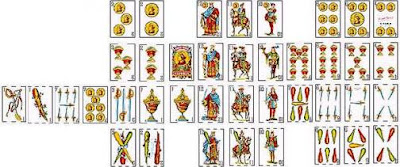WRF, the Weather Research and Forecasting Model, is a mesoscale numerical weather prediction system for meteorological applications across scales from tens of meters to thousands of kilometers.
I am following these instructions and adapting them to my system.
Install dependencies (note you need FORTRAN NetCDF)
sudo apt install csh gfortran m4 mpich libhdf5-mpich-dev libpng-dev libnetcdff-dev netcdf-bin ncl-ncarg
We now identify the path to the include filed and libraries
sudo updatedb
locate netcdf.inc
locate mpich/lib
In my system the two last commands give
/usr/include/netcdf.inc
and
/usr/lib/mpich/lib
Keep these in mind.
OK after downloading and extracting WRF I wanted to do out-of-source compilation (this keeps the source code clean form build symbols), but the Makefile is not well written so it doesn't support this.
Hence I do configure in the source folder
NETCDF=/usr WRFIO_NCD_LARGE_FILE_SUPPORT=1 LD_LIBRARY_PATH=$LD_LIBRARY_PATH:/usr/lib/mpich/lib ./configure
This gives me the list of option form which I chose GNU gfortran and the default no nesting option, because I will be running things like the em_hill2d_x example.
checking for perl5... no
checking for perl... found /usr/bin/perl (perl)
Will use NETCDF in dir: /usr
HDF5 not set in environment. Will configure WRF for use without.
PHDF5 not set in environment. Will configure WRF for use without.
Will use 'time' to report timing information
$JASPERLIB or $JASPERINC not found in environment, configuring to build without grib2 I/O...
------------------------------------------------------------------------
Please select from among the following Linux x86_64 options:
1. (serial) 2. (smpar) 3. (dmpar) 4. (dm+sm) PGI (pgf90/gcc)
5. (serial) 6. (smpar) 7. (dmpar) 8. (dm+sm) PGI (pgf90/pgcc): SGI MPT
9. (serial) 10. (smpar) 11. (dmpar) 12. (dm+sm) PGI (pgf90/gcc): PGI accelerator
13. (serial) 14. (smpar) 15. (dmpar) 16. (dm+sm) INTEL (ifort/icc)
17. (dm+sm) INTEL (ifort/icc): Xeon Phi (MIC architecture)
18. (serial) 19. (smpar) 20. (dmpar) 21. (dm+sm) INTEL (ifort/icc): Xeon (SNB with AVX mods)
22. (serial) 23. (smpar) 24. (dmpar) 25. (dm+sm) INTEL (ifort/icc): SGI MPT
26. (serial) 27. (smpar) 28. (dmpar) 29. (dm+sm) INTEL (ifort/icc): IBM POE
30. (serial) 31. (dmpar) PATHSCALE (pathf90/pathcc)
32. (serial) 33. (smpar) 34. (dmpar) 35. (dm+sm) GNU (gfortran/gcc)
36. (serial) 37. (smpar) 38. (dmpar) 39. (dm+sm) IBM (xlf90_r/cc_r)
40. (serial) 41. (smpar) 42. (dmpar) 43. (dm+sm) PGI (ftn/gcc): Cray XC CLE
44. (serial) 45. (smpar) 46. (dmpar) 47. (dm+sm) CRAY CCE (ftn/cc): Cray XE and XC
48. (serial) 49. (smpar) 50. (dmpar) 51. (dm+sm) INTEL (ftn/icc): Cray XC
52. (serial) 53. (smpar) 54. (dmpar) 55. (dm+sm) PGI (pgf90/pgcc)
56. (serial) 57. (smpar) 58. (dmpar) 59. (dm+sm) PGI (pgf90/gcc): -f90=pgf90
60. (serial) 61. (smpar) 62. (dmpar) 63. (dm+sm) PGI (pgf90/pgcc): -f90=pgf90
64. (serial) 65. (smpar) 66. (dmpar) 67. (dm+sm) INTEL (ifort/icc): HSW/BDW
68. (serial) 69. (smpar) 70. (dmpar) 71. (dm+sm) INTEL (ifort/icc): KNL MIC
Enter selection [1-71] : 32
------------------------------------------------------------------------
Compile for nesting? (0=no nesting, 1=basic, 2=preset moves, 3=vortex following) [default 0]:
Configuration successful!
------------------------------------------------------------------------
testing for fseeko and fseeko64
fseeko64 is supported
------------------------------------------------------------------------
# Settings for Linux x86_64 ppc64le, gfortran compiler with gcc (serial)
#
...
After this we need to fix the configure.wrf file to link against netcdf. This is done via the LIB_EXTERNAL variable:
LIB_EXTERNAL = \
-L$(WRF_SRC_ROOT_DIR)/external/io_netcdf -lwrfio_nf -L/usr/lib -lnetcdff -lnetcdf
Now I can compile, I first tried compiling WRF (using 7 of my cores for compilation)
./compile -j 7 wrf
This took about 4 minutes. Then I compiled the em_hill2d_x example (Makefile agian is not correct so you can't use multiple cores here)
./compile em_hill2d_x
This took about 10 seconds to finish. I moved to the folder where the test is stored and run it:
cd tests/em_hill2d_x
./ideal.exe
./wrf.exe
To make plots of the results I had to modify
this script (
here my version): the NCARG_ROOT trick mentioned in the tutorial doesn't work (I explicitly used the folder where those scripts are in my system, use locate to find them in yours) and they should use loadscript instead of load. But I got it


